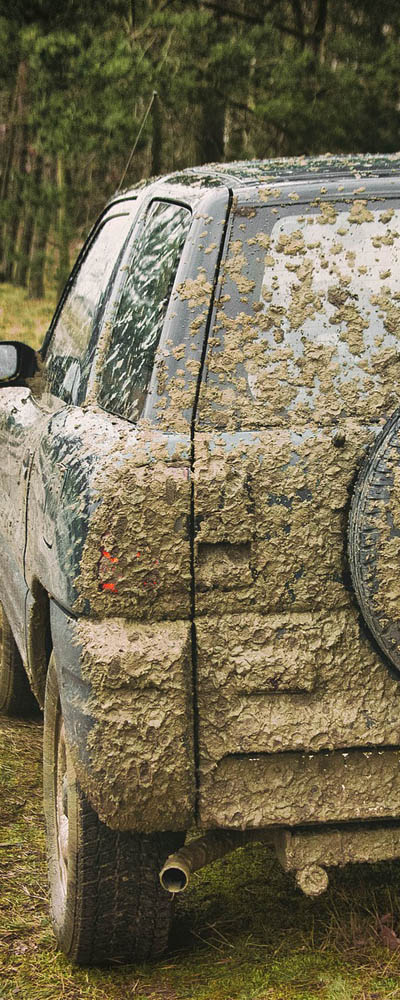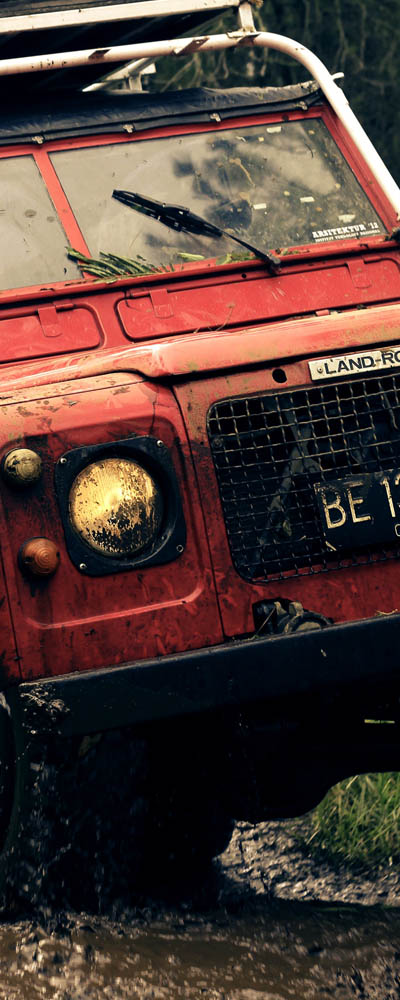Ray's Seasonal Tips
Autumn checks
Autumn signals the start of winter with the evenings drawing in and a real chill in the air. There's nothing better than the feeling of warmth from a fire, whether it's at home at a local bonfire night, watching the dancing flames and absorbing the intense heat.
Venturing out in the car feels less appealing at this time of the year, as daylight hours are shorter and driving usually entails switching on the headlights at both ends of the day.
Modern vehicles come into their own in these conditions, as most are fitted with sensors that automatically switch on the headlights when they detect a reduction in the level of ambient light. Some vehicles also have the technology to automatically swap between dipped and main beam headlights and most cars registered after February 2011 are fitted with dedicated daytime running lights to the front.
There is no doubt that vehicles are getting smarter, however safe driving still relies upon the abilty of the driver to be able to see, think and predict ahead (we are not yet obsolete!).
Taking a little time to prepare ahead of your journey will help reduce the likelihood of you encountering difficulties when driving in poor light conditions. For example:
Walk around you vehicle to check the front and rear lights are working. Brake lights can be checked using reflections in windows or on walls.
Regularly clean front and rear lights to make sure they are clear and bright.
If driving a slightly older vehicle, you can opt for uprated bulbs in your headlights for brighter vision, or accessorise your 4x4 with extra spotlights.
Carry a warning triangle, high visability jacket and a torch in case of breakdowns. Night driving safety kits are easily available to buy.
Check you have the appropriate breakdown and recovery cover for your journey.
If you need professional advice about how best to prepare your vehicle for winter weather conditions, drop into R Hunt 4X4, where you'll always receive a warm greeting whatever the weather.
Adventure driving and going off the beaten track
Adventure touring, expeditions, wild camping and exploring trails off the beaten track are growing in popularity as a way of visiting more remote places. If you have a 4x4 there is an amazing amount of kit available to upgrade vehicles for driving off-road, for example:
Uprated suspension kits (shocks and springs) to improve off-road capabilities.
Tyres with aggressive tread patterns and reinforced sidewalls for extra durability and grip.
Skid plates, sump and steering guards for under body protection from rocks and bumps.
Twin battery system to support extra lighting and for running camping accessories.
Towing and recovery points both front and rear to enable easy rescue if needed.
LED lighting, exhaust upgrades, improving fuel efficiency, raised air in-take/snorke.
The list goes on; with so many options, how do you know what will best meet the needs of your trip? Luckily, Ray is on hand with years of experience off-road driving and working with 4x4's.
If you're planning an adventure holiday or just want to test the capabilities of your 4x4, give Ray a call for help & advice on pre-travel vehicle preparations.
Tips to avoid traffic delays
If you're planning a getaway, the last thing you want is to be delayed in long queues whilst travelling to your destination. The following tips may help to save you time and stress so you can enjoy your break without suffering any travel nightmares:
Plan your route in advance - finding routes on smaller, less known roads, may save you time in the long run.
Travel at quieter times - setting off early in the morning or later in the day may help you avoid the heaviest traffic.
Prepare your vehicle - check all coolant and fluid levels, tyre conditions and wipers.
Fill up with fuel before you leave to save queuing at busy service stations.
Take water and snacks with you so you don't have to stop at the first place you see to keep your passengers happy.
Sign up for a free traffic app on your mobile phone – giving you live information about roadworks, accidents and other delays so you can reroute away from any traffic build ups.
Make sure you have breakdown and recovery cover – so if a problem occurs you can get back on your way as soon as possible.
Summer checks
We all know the damaging effects the sun can have on our skin and the importance of protecting ourselves using sun screens, wearing a sun hat and even staying out of the midday sun on a very hot day.
But have you ever thought about how the sun affects your vehicle's mechanics, paintwork and interior? The sun and heat can cause your paintwork and interior to fade and prematurely fatigue rubber trims and hoses. Low oil and coolant levels can cause your engine to overheat.
Prevention is always better than a cure, so try the following tips to help protect your vehicle against sun damage and keep your vehicle in top condition over the summer to ensure it stays cool even in the heat of the sun:
Ask an expert to check belts and hoses are all sound and top up engine oil, coolant, transmission fluid and brake fluid levels.
Check air filters to ensure they are free from dust and dirt.
Put reflective panels in the front and rear windows and use seat covers to help prevent fading of the interior. If you have leather seats, apply a leather conditioner to prevent the leather from drying out and cracking.
Regularly wash your vehicle to clean off bugs and bird droppings and apply a wax coat to protect against roadside pollutants and combat the sun's UV rays.
Park under cover or in the shade to help reduce fading of paintwork, discolouration of headlights and deterioration of rubber trims.
If you need expert advice or help protecting your vehicle from the sun, give Ray and his team a call so you can enjoy the sun, sea and safe motoring this summer!
Winter checks
Will we have snow this winter? Whilst some of us look forward to the picturesque white covering, even the lightest sprinkling seems to cause choas on the roads. If last year is anything to go on, it's not the white stuff we should be ready for, it's the wet stuff!
So many variables affect our weather, making it difficult to predict what's coming our way, so to steal a phrase 'be prepared' is the best thing we can do.
Some quick winter vehcile checks will help ensure you stay moving this winter:
The following checks will keep you on the move this winter:
Check oil levels. In very cold weather conditions, oil with a lower viscocity may help.
Check the wiper blades for deterioration and top up the wiper fluid. Clear snow from the wipers to
prevent damage to the motor.
Check the fans, heaters and demisters are working in your vehicle so you can quickly clear condensation from your windows before you travel.
Check your fluid levels (coolant, anti-freeze and oil)
Top up the radiator with anti-freeze, a 50:50 ratio of anti-freeze to water will prevent fluids from freezing.
Check the tyre treads - good grip is needed in the snow. Winter tyres could be fitted or buy tyre chains/ snow socks for a cheaper option.
Check the battery voltage is running at full charge.
Keep topped up with fuel as running on empty in the cold can damage the fuel tank.
Check all brakes are effective. Check all lights are working.
Check your emergency equipment (eg; warning triangle, hi-visibility vest, first aid kit)..
Carry a winter kit in your vehicle (ice scraper, de-icer, shovel, blanket, phone charger, reflective jacket/ triangle, torch & spare batteries, emergency flashing light, bag of sand/old carpet mats for traction) And on those long journeys, always take water and a snack.
If you prefer to leave it to the experts, R Hunt 4X4 can offer a winter vehicle check, so give Ray a call to book in your vehicle.
Winter essentials always in stock:
Winter Screen Wash
Anti-freeze
De-Icer
Salt
Snow chains and socks.
Driving in Weather Extremes
Traditional seasons seem to be on their way out and odd weather events and extremes on the increase. However, whether we're faced with torrential rain, freezing conditions or a heat wave, the same basics apply to driving and looking after our vehicles. It's all about planning ahead, preparing your vehicle and the mind-set of the person behind the wheel.
First consider if you need to go out or can your trip wait until weather conditions improve? If you do need to travel take some time ahead of your journey to plan (e.g. the route, clothing, snacks, water, phone charger, breakdown kit, etc)
Prepare your vehicle (e.g. check oil, coolant, screenwash, fuel, wipers, tyres, lights etc)
Ray and team are always on hand if you need help with vehicle preparation.
Finally, as a driver you have a personal responsibility for your own safety and the safety of your passengers and other road users, therefore consider before driving:
Time – Have you left plenty of time for your journey? (remember to factor breaks into your journey time)
Health - Are you feeling fit, well rested and alert?
Driving skills – Are you skilled and confident to drive in the weather conditions?
Drive Safely this Winter







